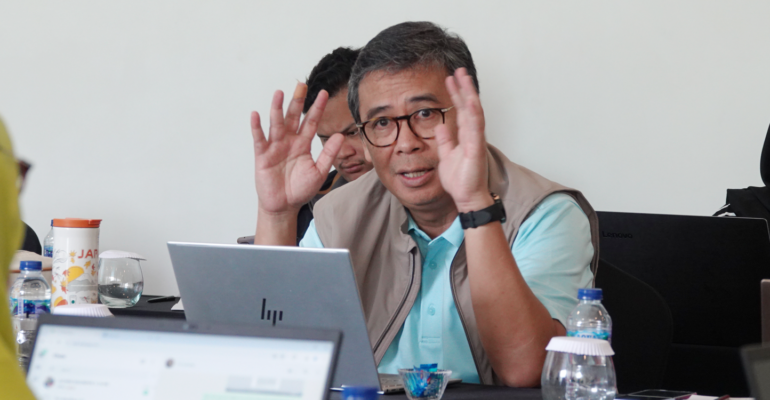TEEBAgriFood Indonesia Working Meeting, IPB University Research Team Discusses Liberica Coffee Research Results

The Research Team from IPB University held a working meeting discussing the results of research on Liberika coffee in North Kayong Regency, West Kalimantan, which was held on 12/5 at the Meeting Room Forest Hill Hotel Ciwidey, Bandung Regency, in the framework of the TEEBAgriFood Indonesia programme.
Prof R Nunung Nuryartono, Team Leader of TEEBAgriFood Indonesia who is also a lecturer at the Department of Economics, IPB UNiversity, opened the meeting by conveying the importance of this research within the TEEBAgriFood framework, which aims to evaluate and understand food and agricultural systems holistically, including economic, social and environmental impacts.
“Liberica coffee in North Kayong Regency has great potential not only from an economic and ecological perspective, but also in terms of environmental sustainability and the welfare of local communities,” said Prof Nunung.
During the meeting, Prof Surya Darma Tarigan, a researcher from the Department of Land Resource Management at IPB University, explained about land resource management used in Liberika coffee cultivation. “Ecological function is one of the important factors to consider in order to develop Liberika coffee in North Kayong,” he explained.
Meanwhile, Prof I Nengah Surati Jaya, a research team from the Department of Forest Management at IPB University added, “Good forest management plays a very important role in the success of coffee cultivation. The balance between conservation and production must be maintained,” he said.
Dr Supijatno, a researcher from the Department of Agronomy and Horticulture at IPB University, highlighted the agronomic techniques applied. According to him, Liberika coffee has its own distinctive flavour because it is cultivated on peatland. In terms of maintenance, Liberika coffee does not require intensive horticulture.
Dr Purnama Hidayat, a researcher at IPB University’s Plant Protection Department, emphasised the importance of plant protection to overcome pests and diseases that often attack coffee plants. “An integrated approach to pest and disease control is necessary to ensure that plants remain healthy and productive,” he said.
In addition, Dr Anna Fariyanti and Dr Yanti Nuraeni Muflikh, from the Department of Agribusiness of IPB University discussed the business and marketing aspects of Liberika coffee. “Developing the value chain and increasing market access is very important to increase coffee farmers’ income,” she explained.
Dr Pini Wijayanti and Bahroin Idris Tampubolon from IPB University’s Department of Resource and Environmental Economics also highlighted the importance of economic and environmental impact analysis of coffee cultivation. “An inclusive and sustainable economic approach can provide long-term benefits for society and the environment,” said Dr Pini Wijayanti.
This working meeting is expected to produce strategic recommendations for the development of Liberika coffee in North Kayong Regency that is more sustainable and has a positive impact on the welfare of farmers and environmental preservation. The results of this research will be the basis for better policy making in the agriculture and plantation sectors. (*/Lp) (IAAS/RUM)



